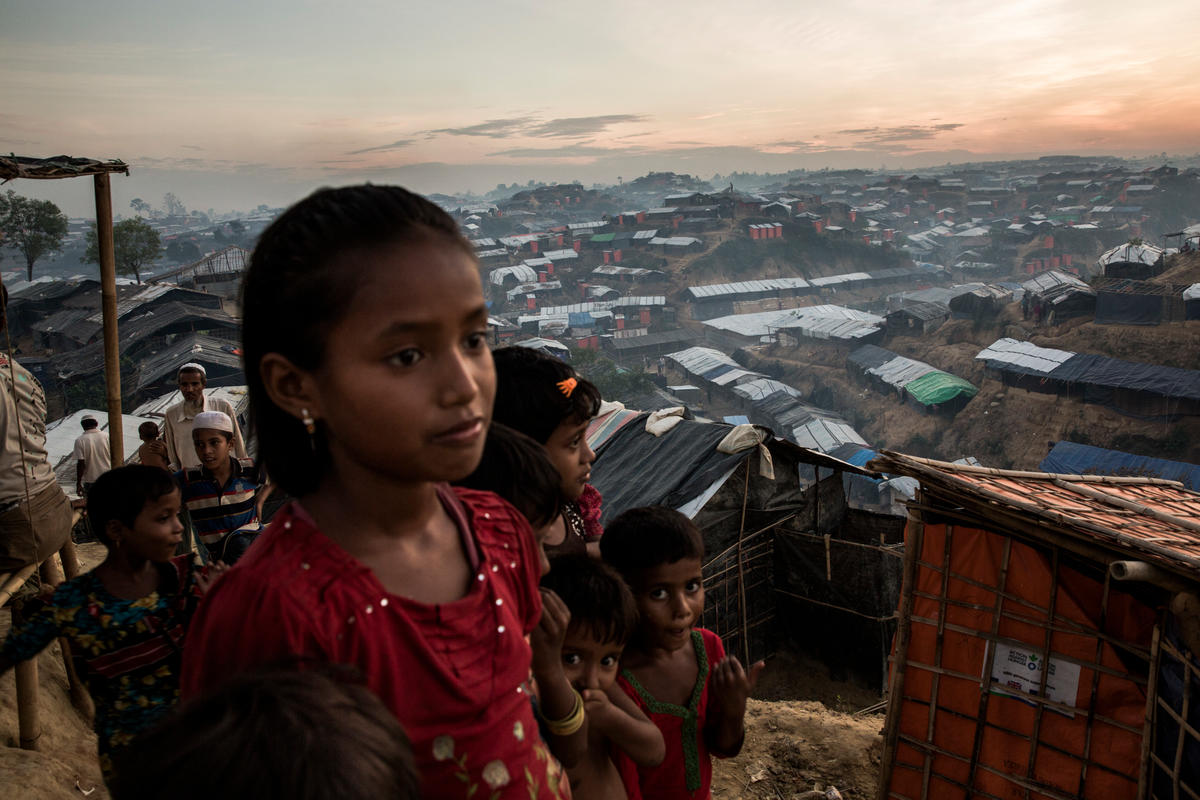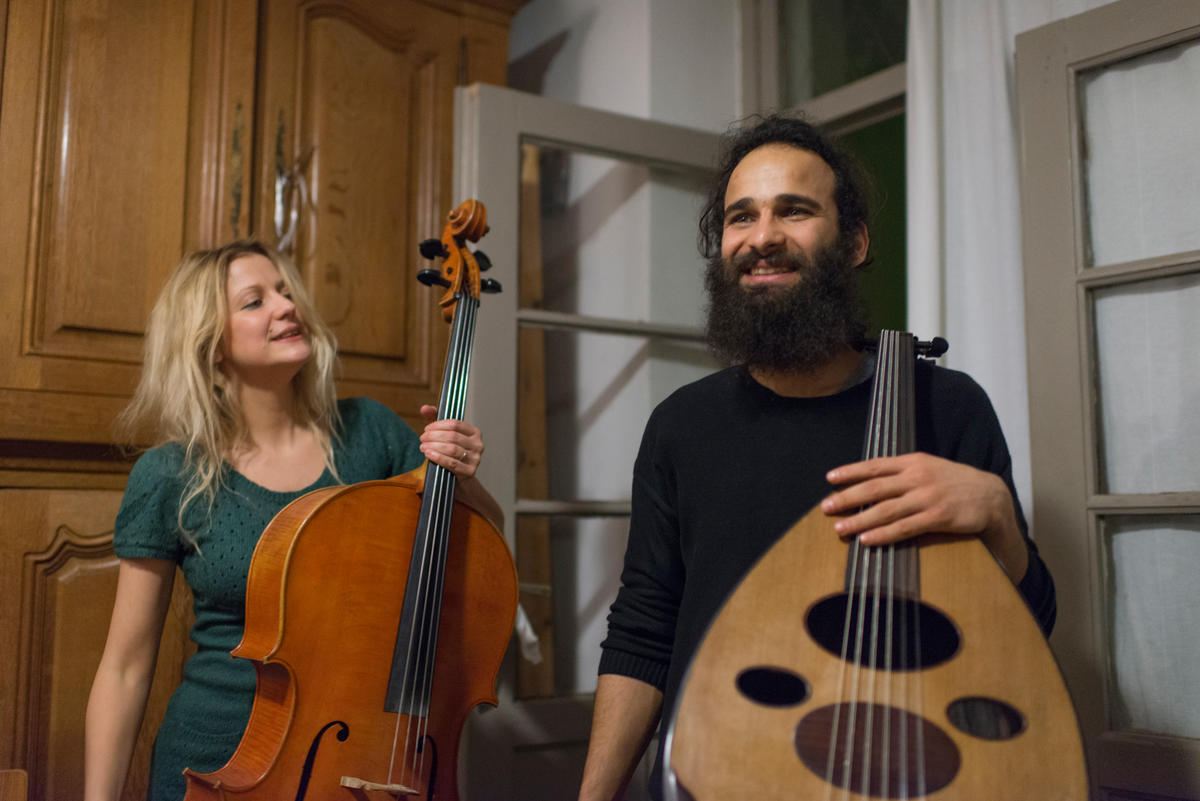The difficult route to safety across Iraq's sun-baked Sinjar mountains
The difficult route to safety across Iraq's sun-baked Sinjar mountains

KHANKE VILLAGE, Iraq, August 20 (UNHCR) - Khilid sits cross-legged on a thin piece of carpet, fingering a string of amber prayer beads, a red and white keffiyeh atop his head and dusty gauze covering a blistered big toe. A bowl of bread and stewed tomatoes is on the concrete floor in front of him as guests arrive.
"It was difficult," he tells the UNHCR visitors about his family's journey from their village outside the northern Iraqi city of Sinjar, which was captured in early August by armed groups, triggering an exodus by the city's ethnic Yazidi minority.
"When the terrorists came I sent my family ahead in our cars. I stayed behind to look after the house and fields," Khilid explains, adding that he knew it was time for him to flee when he saw his male Yazidi friends rounded up and led away, their hands tied.
Khilid hasn't heard from them since. He says a female cousin reached some of the missing people in a nearby city last week by mobile phone, and said hundreds of women and children had been moved from the village and were being held in a large building there.
After he finally fled his village, the 62-year-old patriarch says he caught up with the 13 other members of his family. They spent four nail-biting days on the sun-baked Sinjar mountain range, eating wheat and raw mutton provided by a shepherd. "The elderly suffered most," Khilid says. "Food was dropped from helicopters, but it was too far away to reach."
They moved again when they heard that Kurdish paramilitaries had opened a route to safety in Syria. Four more days of walking across the mountains brought them to a road: sun, heat and blisters taking their toll. They crossed the Tigris River into Syria, were offered a ride, and then spent a night recovering at a refugee camp there. The next morning they headed to Iraq's Kurdistan region, specifically the village of Khanke, where relatives were waiting.
Khilid and his family are more fortunate than many of the other tens of thousands who have fled the Sinjar area since early August. No one in his immediate family has died or is missing. However, nephews and cousins have gone missing, and all are worried about their fate.
Home for Khilid and 32 other families is now a two-storey unfinished apartment building, about 1,000 metres from a sea of brilliant white UNHCR tents that have been mushrooming in a former wheat field. There's shade, water and food.
One side of the building is open, so there's a breeze, and Khilid can watch as the new camp for the displaced goes up. Periodically a truck drives by and drops off aid. Most seems ad hoc so far, but the families in the building have built up a reserve of water. They sometimes have electricity, and food is being provided nearby from a huge field kitchen run by the UN's World Food Programme.
The nearest latrine is a long walk away, but they are getting by for now. The families have erected privacy walls of cardboard. They have registered to receive regular support, but are hoping to avoid a move to the new camp. "We are family," says Khilid. "All of us here. We want to stay together in the same area."
When asked about the future, Khilid is non-committal. While he says his family has lived in Sinjar for more than six generations, he feels it may be time to leave permanently. "Give us a safe life. A safer life for my family," he says. "But we do want to go back," a daughter reminds him. "Life there was difficult, but it is home."
By Ned Colt and Rasheed Hussein Rasheed in Khanke Village, Iraq









